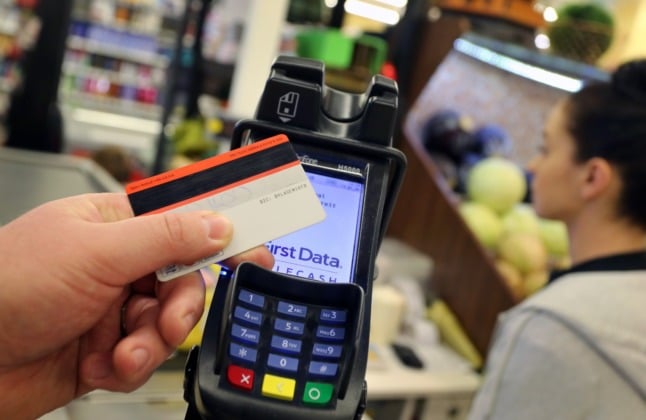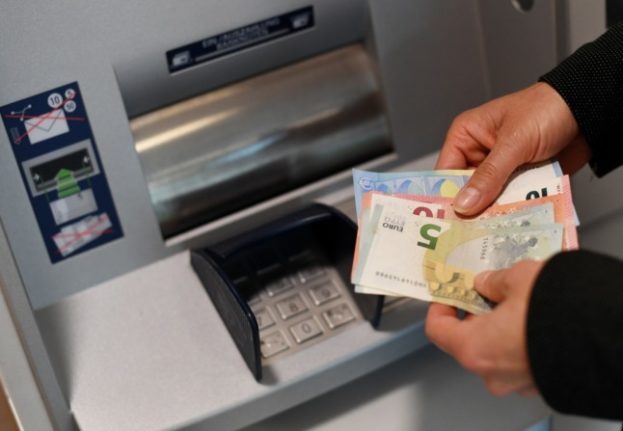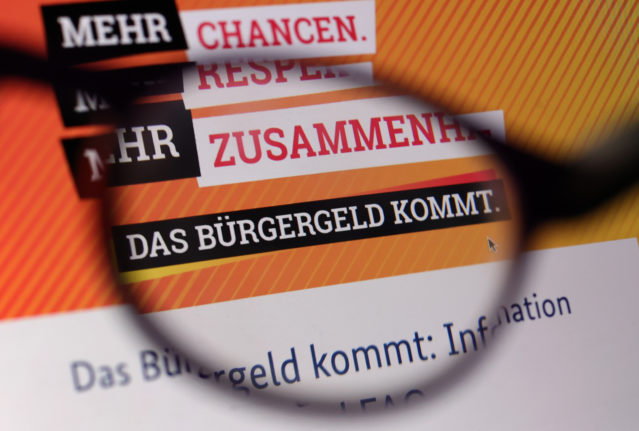Moving to another country and setting up a bank account should be a fairly simple process. But often it’s tricky – and there are lots of things to consider such as the type of account, if you are eligible to join and what fits your situation best.
In Germany there’s the added issue of navigating bank charges. Plus Americans face a further obstacle with the Foreign Account Tax Compliance Act, or FATCA for short. This legislation, which obliges foreign banks to report back to the US tax office on any assets held in these accounts by US taxpayers, has resulted in some German banks closing accounts or turning away customers with an American passport.
READ ALSO: Why are Americans being turned away from German banks?
So if you’re thinking about moving banks – or just want to know what else is out there – here’s what The Local readers give the thumbs up and the thumbs down.
Which German bank came out on top?
The bank that got the most votes in our survey was N26. The appeal of this Berlin-based bank is that everything is online, and they offer services in different languages.
Blessan, 34, in Berlin said: “They have a nice mobile app in English. You can do instant transactions among other N26 users for free. Most of my expat friends use it. so it gets easier to borrow money.”
The bank offers a selection of services from the free ‘Standard’ account to the pricier ‘Metal’ account.
“It’s so easy to open an account with N26,” said Christine Mae Sarito, 33, in Bonn, who says the Premium account works well.
READ ALSO: Why bank customers in Germany are facing higher fees
“Everything is online so it is also easy to reach out to customer support in case of problems,” Sarito said. “I especially like N26 instalments where I can pay for eligible purchases from €50 in instalments of up to six months with very low interest rates.”
J.Rosenbaum in Gauting said N26 offered a “fully online, remote account opening, service in English”.
Melvin Chelli, 29, in Saarbrücken added: “Free account, and easy verification through video ID using residence permit.”
J.M. in Potsdam said N26 was “digital, easy, in English” and offered “global withdrawals and transfers”.

Dorka, 27, in Baden-Württemberg, said: “This was the only one that actually fits my lifestyle and needs.”
“This bank encouraged me to be its customer with superb customer focus, clear terms and conditions, well chosen areas to invest their efforts in, direct charges on logical extras. It’s simply 21st century no-bullsh*t handling of things.”
What other banks do readers recommend?
Commerzbank was given the thumbs up by a few readers.
Gondal, 37, in Böblingen said Commerzbank is a good option because they have lots of branches and ATMs plus “no account maintenance fee with at least €700”.
Gondal also said TransferWise was a good option for foreigners to use if sending money home: “It also has the highest conversion rate and low remittance fee.”
Mohamed Abouseif, 25, who’s in Munich, said Stadtsparkasse allows “everyone to open an account with them and the account maintenance fees are minimal”.
Alison, 29, in Hamburg, said ING is a good option for a checking (Giro) account, and savings account
She said both have “low fees, convenient mobile-first design and accept foreigners – even US citizens who are affected by FATCA, no fees for ATM withdrawals above €50 at many different ATMs, including those of Sparkasse”.
Sunil Kulkarni, 33, in Reutlingen said ING has “by far the best online service and stable mobile banking app. One drawback would be the telephone banking, which is unfortunately only in German and app is also in German.”
Blessan, who recommended N26, also says that Deutsche Bank is a good option to to get an EC (giro) card, which is needed for some services in Germany.
Another reader recommended Deutsche Bank because it is “free for students and has an English language online banking portal and customer care reply email in English”.

Consors Bank is the bank of choice for Maciek, 41, in Frankfurt. “I am a national of a EU country and US living in Germany. So far (knock on wood) Consors has not limit its offered services due to my US citizenship,” said Maciek.
Here are a few other banks that were recommended:
- Hamburger Sparkasse
- Nuri.com
- DKB (DKB Cash account)
- Berliner Sparkasse
- Sparda Bank Hessen
- Revolut
Which banks should perhaps be avoided?
As is often the case, the experience that people have can depend on the customer service they receive.
Although N26 came out on top in our survey, some readers said they would not recommend it.
“Terrible customer service, they just blocked and terminated my account without notice,” said one reader.
“N26 is fully English but some of my friends mentioned the customer support is bad (can’t verify it personally),” said another reader. “They require some nationalities to hold a residence permit in Germany before being able to open an account so it’s not good for newcomers.”
Meanwhile, others said they would avoid the bigger banks “which have many hidden charges and high usage fees”.
Another reader said: “I was refused an account at DKB despite having secure employment and an excellent SCHUFA. They refused to name a specific reason despite repeated requests on my part. I suspect it may be because I’m a foreigner? Also avoid Deutsche Bank because of their involvement in major world financial scandals and Sparkasse for the high fees.”
Others said people in Germany should steer clear of Postbank due to “bad service”.
Another reader in Berlin said he couldn’t get an account with Commerzbank or Deutsche Bank “because I didn’t have a job at the time”.
Berliner Sparkasse was the only one cool with that,” the reader said.
***
Thanks to everyone who shared their experience with us. Although we weren’t able to include all the submissions, we read each of them. Stay tuned for our story on how readers feel banking in Germany should be improved.




 Please whitelist us to continue reading.
Please whitelist us to continue reading.
I use N26 as a kinda travel/second bank and BB Bank as my main. Simply because I got BB Bank many years ago where I worked. The EC card thing though, that can matter here. I still find some random small petrol stations and shops that will only accept EC and cash. And I do not like to carry cash.